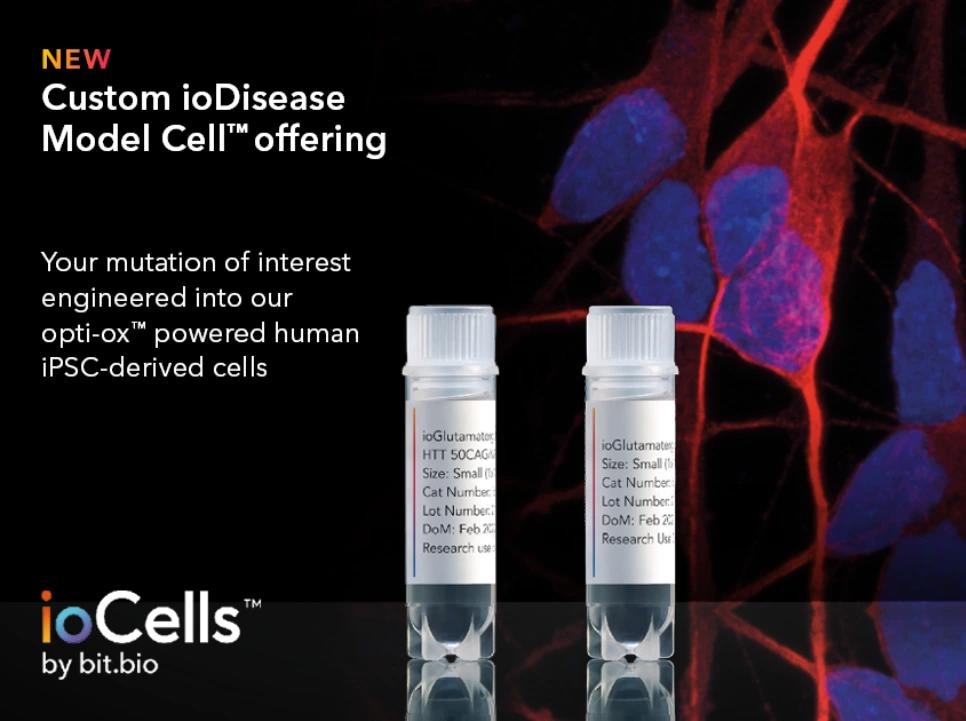bit.bio, the cell coding company today launches its new Custom ioDisease Model CellsTM offering. This offering allows scientists to commission their disease-relevant mutation of interest in bit.bio's human induced pluripotent stem cell (iPSC)-derived cells powered by opti-ox technology.

Image Credit: bit.bio
The disease-relevant mutation is engineered into bit.bio’s human ioWild TypeTM cells using CRISPR/Cas9 gene editing. As disease model cells come from an identical human genetic background to ioWild Type cells, any experimental differences observed between the wild type and the disease model can be confidently attributed to the effects caused by the disease-specific mutations.
bit.bio’s cells are precision reprogrammed by opti-ox, which enables the manufacturing of any human cell type at scale with precision and consistency. These key features make the models ideally suited to screening applications for early drug discovery as well as for fundamental research. Scientists receive defined, consistent, ready-to-use cells, empowering them to investigate the impact of their mutation in a human context.
Due to a lack of standardised, easy to use and readily accessible human cell models, scientists have relied on animal models and cell lines that differ considerably from human biology. iPSC-derived cells from patients offer a human model for disease research, but sourcing them with the disease-specific mutation of interest can be a complex and time-consuming process. These cells also often lack standardisation and optimised, fast protocols, making it difficult to generate consistent data and scalable disease models.
This offering provides scientists with a powerful tool to overcome these limitations.